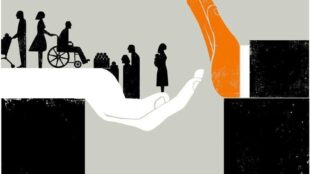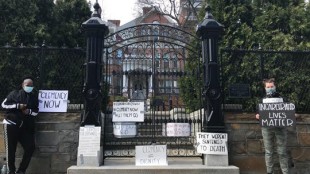Free From Charge: Revamping the Public Charge Rule
(Source) The Biden administration must confront a plethora of immigration issues following the immense number of restrictions the Trump administration placed on immigrant applicants. These “land mines” of Trump-era anti-immigrant policies are rooted deep- “buried under layer after layer of bureaucratic actions and then [can] essentially devastate the system in untold ways that aren’t discovered until policies are applied in particular cases.” One land mine worth addressing is the controversial “Public Charge” Rule. In 1882, Congress first implemented the “Public Charge” Rule as a relatively vague statute that allowed the U.S. government to deny a visa to anyone who “is likely at any time to become a public charge.” The Public Charge Rule was designed to prevent noncitizens from entering and remaining in the country if they are likely to require some undesignated degree of public assistance. Laws frequently identify self-sufficiency of noncitizen applicants as a compelling government interest and cite it as justification for this exclusion rule. This Rule is also meant to remove the incentive for illegal immigration provided by the availability of public benefits. However, the 1882 federal law did not provide a set definition of what a “public charge” is, nor did it provide any specific guidelines to [read more]


